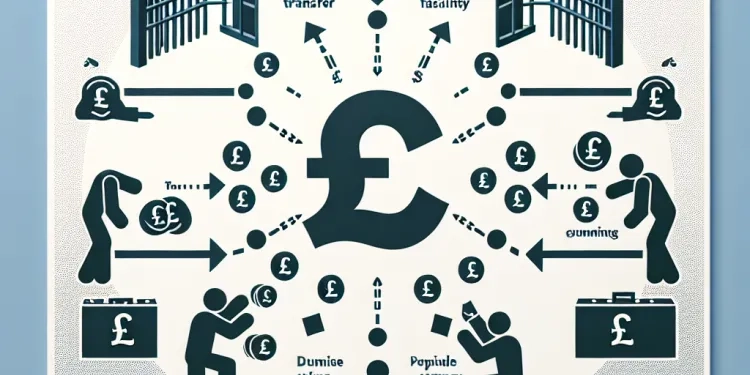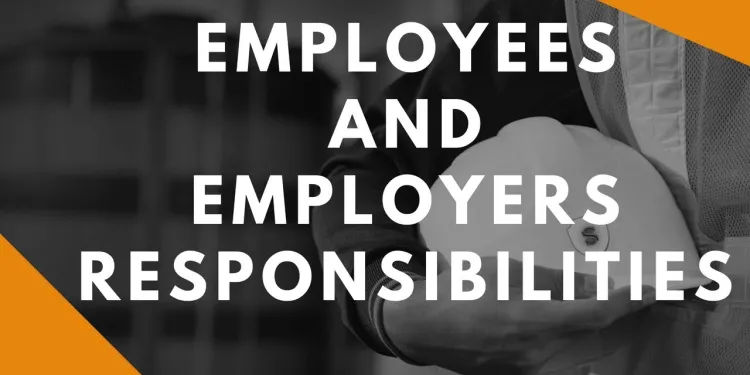
Find A Professional
More Items From Ergsy search
-

How often can I visit someone in prison?
Relevance: 100%
-

Visiting a Prisoner - What To Wear on a prison visit
Relevance: 98%
-

How are health services provided in prison?
Relevance: 79%
-

Are phone calls from prison free?
Relevance: 74%
-

What are women's prisons like in the UK?
Relevance: 72%
-

How can I contact someone in prison?
Relevance: 65%
-

Someone I know has been sent to prison.
Relevance: 57%
-

Can I visit them in prison?
Relevance: 49%
-

What should I expect when visiting a prison?
Relevance: 48%
-

What items can I send to someone in prison?
Relevance: 46%
-

How can I advocate for an inmate's needs?
Relevance: 38%
-

How do I find out where they are incarcerated?
Relevance: 36%
-

Can inmates receive packages?
Relevance: 35%
-

Can I send money to an inmate?
Relevance: 33%
-

Can inmates have personal belongings?
Relevance: 29%
-

Can inmates access legal assistance?
Relevance: 27%
-

What is an inmate commissary?
Relevance: 22%
-

What are the rules for writing to an inmate?
Relevance: 20%
-

What happens if an inmate is transferred to another facility?
Relevance: 16%
-

Female genital mutilation (FGM) | NHS
Relevance: 5%
-

THE LAW IN 60 SECONDS | HEALTH AND SAFETY AT WORK
Relevance: 3%
-

What is the new treatment for hepatitis C like?
Relevance: 2%
-

Women talking about their personal experiences of female genital mutilation (FGM) | NHS
Relevance: 1%
-

5 Facts about Alcohol and Britain
Relevance: 1%
-

Navigating Child Custody Laws in the UK
Relevance: 1%
-

John Wesley: Faith That Sparked the Methodist Movement | Full Movie
Relevance: 1%
-

Health and safety responsibilities
Relevance: 1%
-

Understanding the Impact of the UK's New Domestic Abuse Legislation
Relevance: 1%
-

John Wesley: Faith That Sparked the Methodist Movement | Full Movie
Relevance: 1%
Understanding the Situation
When someone you know is sent to prison, it can be a challenging and emotional time. It's important to acknowledge the feelings you're experiencing and understand the implications this has for both you and the person incarcerated. This situation often disrupts family dynamics and can cause a multitude of emotional and practical issues to arise.
Legal and Practical Considerations
Once an individual is sentenced to prison in the UK, they will typically be sent to a prison that matches their category based on the severity of their offense and their risk level. Understanding the prison system, including how categories work, can help you navigate your interactions with the institution. Additionally, it's crucial to be aware of the legal process and any potential for appeal or reassessment of their sentence.
Maintaining Contact
One of the key concerns for those with a loved one in prison is maintaining contact. In the UK, prisoners are allowed to receive visitors and communicate with family and friends through letters, phone calls, and in some cases, video calls. It's important to familiarize yourself with the specific rules and visiting hours of the prison where your loved one is held.
Emotional Impact and Support
The emotional impact of having a friend or family member in prison can be significant. Feelings of anger, shame, and sadness are common. Seeking support from friends, support groups, or mental health professionals can be beneficial. There are organizations in the UK, such as the Prisoners' Families Helpline, that provide resources and support for those affected by imprisonment.
Social Stigma and Community
There can be a social stigma attached to having a connection with someone in prison, which might affect your interactions within the community. It's essential to manage these perceptions and maintain your mental well-being. Being open with trusted individuals about your situation and seeking community support can help alleviate some of these challenges.
Planning for the Future
While your loved one is incarcerated, it may be beneficial to plan for their release and reintegration into society. Consider their needs such as housing, employment, and psychological support after their release. Preparing in advance can aid in a smoother transition and reduce the likelihood of reoffending, thereby contributing to their successful reintegration into the community.
Conclusion
Having someone you know go to prison is undeniably difficult. However, understanding the system, maintaining contact, seeking support, and planning for the future can help manage the challenges you may face. Remember to take care of your emotional health and reach out for help when needed.
Understanding the Situation
When someone you know goes to prison, it can be hard and make you feel many things. It's okay to feel upset or confused. This can change how your family is and bring up other problems. It's important to understand your feelings and how this situation affects you and your loved one.
Legal and Practical Considerations
In the UK, when someone is sent to prison, they go to a place based on what they did. Knowing how this works can help you deal with the situation better. It's also important to know about any legal options, like appeals, that might be available.
Maintaining Contact
If someone you care about is in prison, you will want to stay in touch. In the UK, people in prison can have visitors, and they can also talk to family and friends through letters, phone calls, and sometimes video calls. Make sure to learn about the visiting times and rules of the prison where your loved one is staying.
Emotional Impact and Support
You might feel many emotions when someone you care about is in prison, like anger or sadness. It's important to talk to friends or join support groups. In the UK, you can contact the Prisoners' Families Helpline for help and advice.
Social Stigma and Community
Some people might treat you differently if they know you have a loved one in prison. It can be hard, but remember to take care of yourself. Share your story with people you trust and reach out to your community for support.
Planning for the Future
Think about what your loved one will need when they leave prison. This might include finding a place to live, getting a job, and emotional support. Planning ahead can help them have a smoother return to everyday life and avoid problems.
Conclusion
Having someone you care about in prison is tough, but knowing how to handle things and asking for help can make it easier. Look after your feelings and remember to reach out for support when you need it.
Frequently Asked Questions
How can I contact someone in prison?
You can usually contact someone in prison through letters, phone calls, or by visiting. Check the specific prison's guidelines for details.
Can I visit them in prison?
Yes, most prisons allow visits, but you may need to schedule in advance and comply with visitation rules.
What items can I send to someone in prison?
You can typically send letters, some books, and magazines, but check specific rules about prohibited items and packaging.
How do I find out where they are incarcerated?
You can use online inmate locator tools on the state's Department of Corrections website or the Federal Bureau of Prisons website.
Can I send money to an inmate?
Yes, most prisons have a way to deposit money into an inmate's commissary account for purchasing necessities.
What should I expect when visiting a prison?
Expect security checks, a waiting period, and specific rules about what you can wear and bring with you.
Are phone calls from prison free?
No, phone calls from prison usually have a cost, and rates can vary. Inmates often use pre-paid accounts or call collect.
Can I bring gifts when I visit?
Prisons typically do not allow visitors to bring gifts. Items must be sent through approved channels.
How often can I visit someone in prison?
Visitation frequency can vary depending on the prison's policies and the inmate's privileges.
Can inmates receive packages?
Inmates can receive packages, but they must usually be sent directly from approved vendors.
What types of programs are available for inmates?
Many prisons offer educational, vocational, and rehabilitation programs to help inmates improve skills and prepare for reentry.
Can inmates send mail?
Yes, inmates can send mail, but it is subject to inspection by prison staff.
How do I send books or magazines?
Books and magazines must be sent directly from the publisher or an approved vendor.
What is an inmate commissary?
A commissary is a store within the prison where inmates can purchase approved items with deposited money.
How can I advocate for an inmate's needs?
You can contact prison officials, write letters, or work with organizations that support prisoners' rights.
Can inmates have personal belongings?
Inmates are allowed to have certain personal belongings, but these are often limited to items purchased from the commissary or sent through approved channels.
What happens if an inmate is transferred to another facility?
You would need to use an inmate locator to find their new location and follow the procedures for that facility.
How are health services provided in prison?
Prisons provide basic health services, but the quality and extent can vary. Inmates may need to request appointments for care.
Can inmates access legal assistance?
Inmates have access to legal resources in the prison library and can correspond with their attorneys through mail and visits.
What are the rules for writing to an inmate?
Letters must usually include the inmate's full name and ID number, and certain content and materials may be restricted.
How can I talk to someone in prison?
If you want to talk to a person in prison, you can:
- Write them a letter. Use pen and paper to send a message.
- Make a phone call. Ask if you can talk on the phone with them.
- Visit them. Check how to go to the prison and see them in person.
Ask someone you trust for help if you are not sure what to do. They can help you write a letter or call the prison.
You can talk to someone in prison by sending letters, making phone calls, or visiting them. Look at the rules for that prison to find out more.
Can I go see them in jail?
You might want to visit someone in jail. Here are some things to help:
- Ask the jail when you can visit.
- Check if you need special permission.
- Write down the rules you must follow.
- Bring an adult for help if you need.
- Use pictures or apps to understand better.
If you have questions, ask an adult for help.
Yes, most prisons let people visit. But you need to plan your visit ahead of time. You also need to follow the rules for visiting.
What things can I send to someone in prison?
Do you want to send a gift to someone in prison? Here’s how you can do it:
- Check the prison rules. Each prison is different. Some things are not allowed.
- You can send letters. Write a nice note to say hello.
- Books might be allowed. Ask the prison which books are okay.
- Money can be sent. This helps the person buy things they need.
Remember, always follow the prison’s rules. If you need help, ask someone who knows about the rules. Use simple words and keep your note short.
You can usually send letters, some books, and magazines. But make sure to check the rules about things you cannot send and how to pack them.
How can I find out where they are in prison?
You can find someone in prison by using online tools. Look on the state's Department of Corrections website or the Federal Bureau of Prisons website.
Can I give money to someone in prison?
Yes, most prisons let you put money into a prisoner's account. They can use this money to buy things they need.
What happens when I visit a prison?
When you visit a prison, here is what you can expect:
- Checking In: You will need to show some ID, like a driver's license, when you arrive.
- Security Check: You might go through a metal detector, like at the airport.
- Waiting: Sometimes, you have to wait for a short time before entering.
- Visiting Area: You will meet the person in a special room for visitors.
- Rules: There might be rules about what you can bring and how long you can stay.
Helpful tips:
- Ask staff if you have questions or need help.
- Bring only what you need for the visit.
- Be on time for your visit.
Get ready for some safety checks. You might have to wait a bit, and there are special rules about what you can wear and bring with you.
Do you have to pay for phone calls from prison?
When someone calls from prison, there is usually a cost. The price can be different for each call. People in prison might use pre-paid phone cards, or they might use collect calls.
Can I bring presents when I visit?
People can't bring gifts when they visit someone in prison. If you want to send something, you have to do it the right way.
How many times can I visit someone in prison?
You can visit someone in prison a few times. The number of visits is different for each prison.
Ask the prison how many visits you can have.
If you need help, you can use:
- Ask a family member
- Use pictures to understand
- Use simple words to ask questions
How often someone can visit a prisoner depends on the rules of the prison and what the prisoner is allowed to do.
Can people in prison get packages?
Yes, people in prison can get packages. Here’s how you can send a package:
- Ask the prison what items you can send.
- Use a company that is allowed to send packages to prisons.
- Write the person’s name and prison number on the package.
Using simple words and pictures can help understand better. If you need help, ask a grown-up.
People in prison can get packages, but they must usually come straight from stores that are allowed to send them.
What programs can people in prison do?
People in prison can do different programs to help them learn and grow. Here are some programs they can do:
- School Classes: They can learn to read, write, and do math.
- Job Training: They can learn how to do different jobs.
- Art and Music: They can make art or play music.
- Exercise: They can do sports and keep fit.
- Life Skills: They can learn how to solve problems and make good choices.
These programs help them do better when they leave prison.
For help with reading, you can try:
- Using audiobooks to listen to stories.
- Asking someone to read with you.
- Finding books with pictures.
Many prisons have classes and programs. These help people in prison learn new things and get ready for life after prison. People can learn skills for jobs and how to live better.
Can people in prison send letters?
Yes, people in prison can send letters. They can write to family and friends. Here are some tips to help:
- Use simple words.
- Write clearly.
- Ask someone for help if you need it.
If you find writing letters hard, here are some helpful ideas:
- Draw pictures instead of writing words.
- Use a voice recorder to send messages.
Yes, people in prison can send letters, but prison staff will check them first.
How can I send books or magazines?
Here is how to send books or magazines:
- Put them in a box or envelope.
- Write the address where you want them to go.
- Put on stamps or pay for delivery at the post office.
- Take the box or envelope to the post office.
If you need help, ask a friend or family member. You can also use pictures or videos online to show you how.
You can only send books and magazines if they come straight from the people who made them or from someone they trust.
What is an inmate commissary?
An inmate commissary is a store in a prison. People in prison can buy things like snacks, soap, and shampoo. They use money from their prison account to pay.
Helpful tip: You can use pictures to remember what you want to buy.
A commissary is a shop inside the prison. People in prison can buy things from the commissary. They use money that is put in their account to pay for items they are allowed to have.
How can I help someone in prison?
You can talk to the people who work at the prison. You can also write letters or join groups that help people in prison.
Can people in prison have their own things?
People in prison can have some of their own things, like photos and books. But there are rules about what they can keep. Prison staff will check these things. It is important to follow the rules.
If you want to know more, you can ask someone who works at the prison or look for easy-to-read guides on prison rules. It might be helpful to use pictures or ask someone to explain the rules to you.
People in prison can have some of their own things. But, they usually can only get things from a special prison shop or from people who are allowed to send them items.
What happens if a prisoner moves to a new prison?
Here is what happens when a prisoner goes to a different prison:
- The prisoner takes their things with them.
- They meet new staff and other prisoners.
- The new prison might have different rules.
- Family and friends need to know the new address.
Help to understand more:
- Ask a family member or friend to explain.
- Use pictures or videos to learn more.
- Find someone who works at the prison to ask questions.
You need to use a tool called an inmate locator to find out where they are now. Then, you can follow the steps for that place.
How do people get healthcare in prison?
People in prison need doctors and nurses to stay healthy. Here is how they get help:
- Prison doctors and nurses can help if someone is sick.
- Prisoners can ask to see a doctor or nurse.
- If the prisoner needs special care, they might go to a hospital.
Here are some tips to help understand this information:
- Use pictures to explain what doctors and nurses do.
- Ask someone you trust to explain if you have questions.
- Make a list of words you don't know, and find out what they mean.
Prisons have doctors and nurses. They help people who are sick. But sometimes the help is not very good. People in prison have to ask to see the doctor if they feel unwell.
Can prisoners get help from a lawyer?
People in prison can use books and computers in the library to learn about the law. They can also talk to their lawyers by sending letters or when their lawyers come to visit them.
How do I write a letter to someone in prison?
Writing to someone in prison has special rules.
Here are some tips to help you:
- Use plain paper and a pen or pencil.
- Put the prisoner's name and their prison number at the top.
- Keep your letters friendly and nice.
- Check what you are allowed to send. Some things might not be okay.
- Use short and simple words and sentences.
Supportive Tools:
- Ask a friend to help you write the letter.
- Use a dictionary to understand or check words.
When you send a letter, write the prisoner's full name and ID number. Some things and words might not be allowed.
Useful Links
- Ergsy carfully checks the information in the videos we provide here.
- Videos shown by Youtube after a video has completed, have NOT been reviewed by ERGSY.
- To view, click the arrow in centre of video.
- Most of the videos you find here will have subtitles and/or closed captions available.
- You may need to turn these on, and choose your preferred language.
- Go to the video you'd like to watch.
- If closed captions (CC) are available, settings will be visible on the bottom right of the video player.
- To turn on Captions, click settings .
- To turn off Captions, click settings again.
More Items From Ergsy search
-

How often can I visit someone in prison?
Relevance: 100%
-

Visiting a Prisoner - What To Wear on a prison visit
Relevance: 98%
-

How are health services provided in prison?
Relevance: 79%
-

Are phone calls from prison free?
Relevance: 74%
-

What are women's prisons like in the UK?
Relevance: 72%
-

How can I contact someone in prison?
Relevance: 65%
-

Someone I know has been sent to prison.
Relevance: 57%
-

Can I visit them in prison?
Relevance: 49%
-

What should I expect when visiting a prison?
Relevance: 48%
-

What items can I send to someone in prison?
Relevance: 46%
-

How can I advocate for an inmate's needs?
Relevance: 38%
-

How do I find out where they are incarcerated?
Relevance: 36%
-

Can inmates receive packages?
Relevance: 35%
-

Can I send money to an inmate?
Relevance: 33%
-

Can inmates have personal belongings?
Relevance: 29%
-

Can inmates access legal assistance?
Relevance: 27%
-

What is an inmate commissary?
Relevance: 22%
-

What are the rules for writing to an inmate?
Relevance: 20%
-

What happens if an inmate is transferred to another facility?
Relevance: 16%
-

Female genital mutilation (FGM) | NHS
Relevance: 5%
-

THE LAW IN 60 SECONDS | HEALTH AND SAFETY AT WORK
Relevance: 3%
-

What is the new treatment for hepatitis C like?
Relevance: 2%
-

Women talking about their personal experiences of female genital mutilation (FGM) | NHS
Relevance: 1%
-

5 Facts about Alcohol and Britain
Relevance: 1%
-

Navigating Child Custody Laws in the UK
Relevance: 1%
-

John Wesley: Faith That Sparked the Methodist Movement | Full Movie
Relevance: 1%
-

Health and safety responsibilities
Relevance: 1%
-

Understanding the Impact of the UK's New Domestic Abuse Legislation
Relevance: 1%
-

John Wesley: Faith That Sparked the Methodist Movement | Full Movie
Relevance: 1%